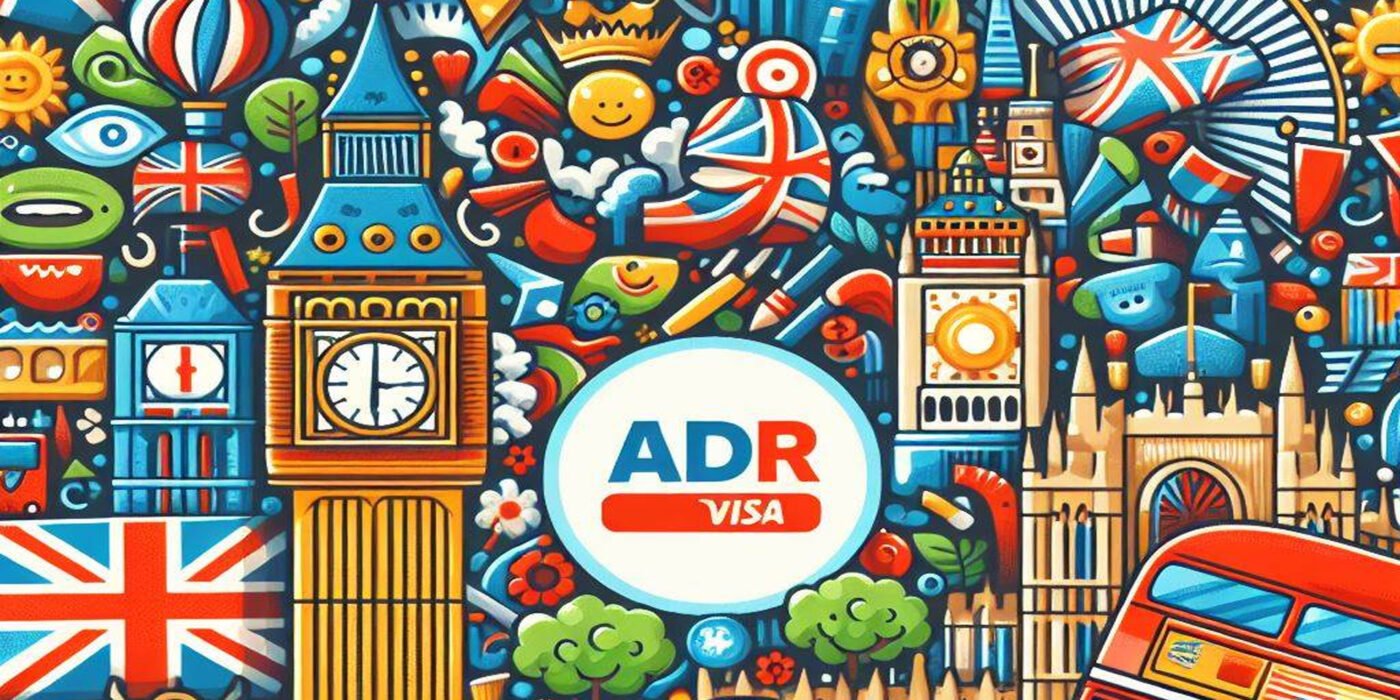Introduction to UK ADR Visa
The United Kingdom offers a range of visas catering to various professions and industries. Among these is the Alternative Dispute Resolution UK ADR Visa, specifically designed for professionals seeking opportunities in the legal sector. Understanding the nuances of this visa and its application process is essential for those aspiring to build a career in law within the UK.
Understanding ADR Visa
What is a UK ADR Visa?
Alternative Dispute Resolution (ADR) refers to legal dispute resolution methods outside traditional court proceedings. It includes mediation, arbitration, and negotiation techniques, providing parties with more flexible and cost-effective means of resolving conflicts.
Importance of UK ADR Visa
The UK ADR Visa holds significant importance for legal professionals looking to practice in the UK. It allows individuals to work in alternative dispute resolution and provides a pathway to broader opportunities within the legal domain.
Eligibility Criteria for UK ADR Visa
- Parents
- Grandparents
- Adult siblings (over 18)
- Children, while sponsors are required to be British citizens, settle in the UK, or hold another specific immigration status.
Qualifications and Experience
To be eligible for the ADR Visa, applicants must possess relevant qualifications and experience in alternative dispute resolution. This typically includes a degree in law or a related field and practical knowledge in mediation or arbitration.
English Language Requirement
Proficiency in the English language is a fundamental requirement for obtaining the ADR Visa. Applicants must demonstrate their ability to communicate effectively in English through standardized language tests such as the IELTS or TOEFL.
Application Process
Gathering Required Documents
The application process for the ADR Visa involves gathering various documents, including educational certificates, proof of work experience, and evidence of English language proficiency. Additionally, applicants may need to provide a statement of purpose outlining their intentions and aspirations for pursuing a career in alternative dispute resolution in the UK.
Submitting the Application
Once all required documents are gathered, applicants can submit their visa application online through the official UK portal. It’s essential to ensure that all information provided is accurate and up to date to avoid delays or complications in the application’s processing.
Benefits of UK ADR Visa
Employment Opportunities
One of the primary benefits of the ADR Visa is its access to a wide range of employment opportunities within the legal sector. There is a growing demand for professionals skilled in alternative dispute resolution techniques, from law firms to corporate organizations.
Settlement and Citizenship Pathways
In addition to employment opportunities, the ADR Visa can serve as a pathway to settlement and citizenship in the UK. Successful applicants may eventually qualify for permanent residency or British citizenship, providing long-term stability and security.
What to Do If Your Application Refusal
If your UK visa application has been refused, it can be a challenging and disheartening experience. However, it’s crucial to understand that there are steps you can take to address the refusal and possibly overturn the decision. Here’s what you can do if your UK visa application has been refused:
Review the Refusal Letter: The first step is to carefully review the refusal letter provided by the UK Visas and Immigration (UKVI). This letter will outline the reasons for the refusal and any relevant instructions for appealing the decision.
Understand the Reasons: Take the time to understand the reasons cited for the refusal. This could include issues related to documentation, eligibility criteria, or concerns about your intentions to return to your home country.

Seek Legal Advice: Consider seeking legal advice from an immigration solicitor or advisor specializing in UK visa applications. They can provide valuable insights into your case and advise you on the best action.
Consider Re-Applying: Depending on the reasons for the refusal, you may have the option to address any deficiencies in your application and re-apply for the visa. Ensure you provide any additional documentation or information that may strengthen your case.
File an Administrative Review: If you believe that the refusal decision was incorrect or unjust, you may have the option to request an administrative review. This involves asking UKVI to review the decision made by the Entry Clearance Officer (ECO) who refused your application.
Appeal the Decision: In some cases, you may have the right to appeal the refusal decision to the First-tier Tribunal (Immigration and Asylum Chamber). This option is available for visa refusals, such as spouse visas or human rights claims.
Seek Alternative Options: If your visa application has been refused multiple times or if you are facing significant challenges in obtaining a UK visa, explore alternative immigration options. It could include applying for a different type of visa or seeking residency through other pathways, such as investment or entrepreneurship schemes.
Stay Informed: Keep yourself updated on any changes to UK immigration policies or procedures that may affect your case. UKVI regularly updates its guidance and requirements for visa applications, so staying informed can help you navigate the process more effectively.
Maintain Clear Communication: Throughout the process of addressing a visa refusal, maintain clear and respectful communication with UKVI officials and any legal representatives involved in your case. Providing accurate information and addressing any concerns promptly can help strengthen your case.
Remain Patient and Persistent: Dealing with a visa refusal can be lengthy and frustrating. However, it’s essential to remain patient and persistent in pursuing a resolution to your case. With determination and the proper support, you can overcome the refusal and achieve your goal of obtaining a UK visa.
Remember that each visa refusal case is unique; the appropriate course of action will depend on the circumstances involved. Taking proactive steps and seeking professional guidance can increase your chances of addressing a refusal and ultimately securing a UK visa.
Challenges and Considerations
Financial Aspects
Relocating to a new country for work inevitably comes with financial considerations. Applicants should be prepared for potential costs associated with visa application fees, relocation expenses, and living costs in the UK.
Adaptation to UK Culture
Adapting to a new culture and environment can also pose challenges for individuals moving to the UK. From understanding local customs to navigating the healthcare and education systems, it’s essential to be prepared for the cultural adjustment process.
Required Records for a Dependent Visa
Documentation supporting the applicant’s eligibility is the cornerstone of a successful ADR visa application.
This could consist of:
Medical Records: Precise and comprehensive medical records are essential. These documents should provide strong evidence of the requirement for ongoing care due to disability, disease, or aging.
Sponsor Qualifications: Confirming that the sponsoring family member satisfies the eligibility requirements is crucial. Depending on their position in the UK, they should be well-documented as capable of providing care and support.
Evidence of Relationship: Establishing the applicant’s link with the sponsoring family member is crucial. Birth certificates, marriage certificates, or other pertinent documents might provide tangible evidence.
Financial Capability: It is essential to show that the sponsoring family member can sustain the applicant’s expenses for at least five years. This covers lodging, childcare, and everyday costs.
FAQs About UK ADR Visa
What is the validity period of a UK ADR Visa?
The validity period of an ADR visa typically depends on the duration of the employment contract or the length of the course of study, with options for extensions or renewals available.
Can family members accompany the applicant?
Yes, family members such as spouses and children may be eligible to accompany the primary applicant to the UK on dependent visas, allowing them to reside, work, or study there.
Can I switch from another visa category to ADR?
In some cases, it may be possible to switch from another visa category to the ADR Visa, provided the applicant meets the eligibility criteria and requirements set forth by UK immigration authorities.
Conclusion
The UK ADR Visa offers a unique opportunity for legal professionals to pursue their careers in alternative dispute resolution within the UK. Its comprehensive eligibility criteria, streamlined application process, and array of benefits serve as a gateway to a rewarding and fulfilling career in the legal sector.
